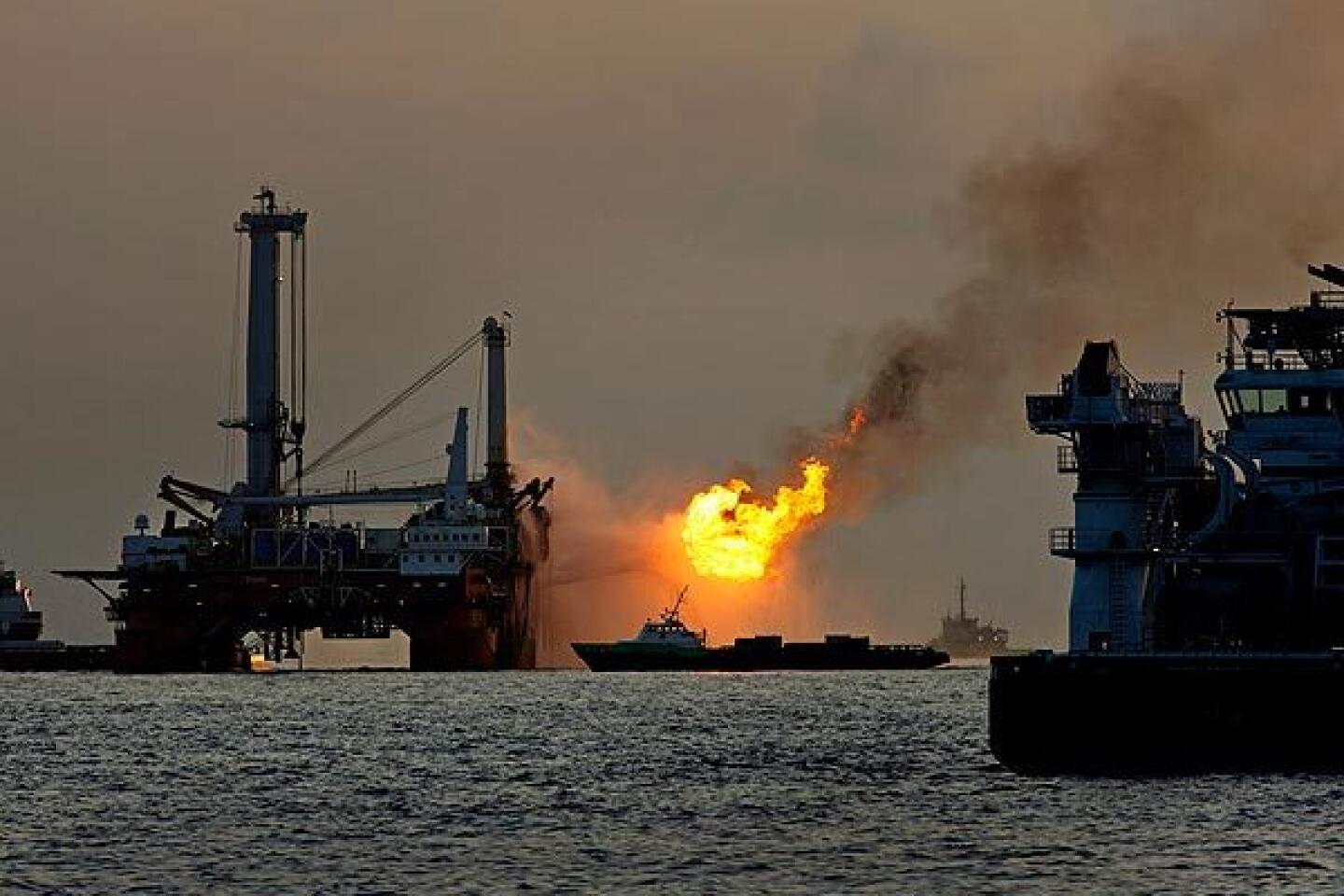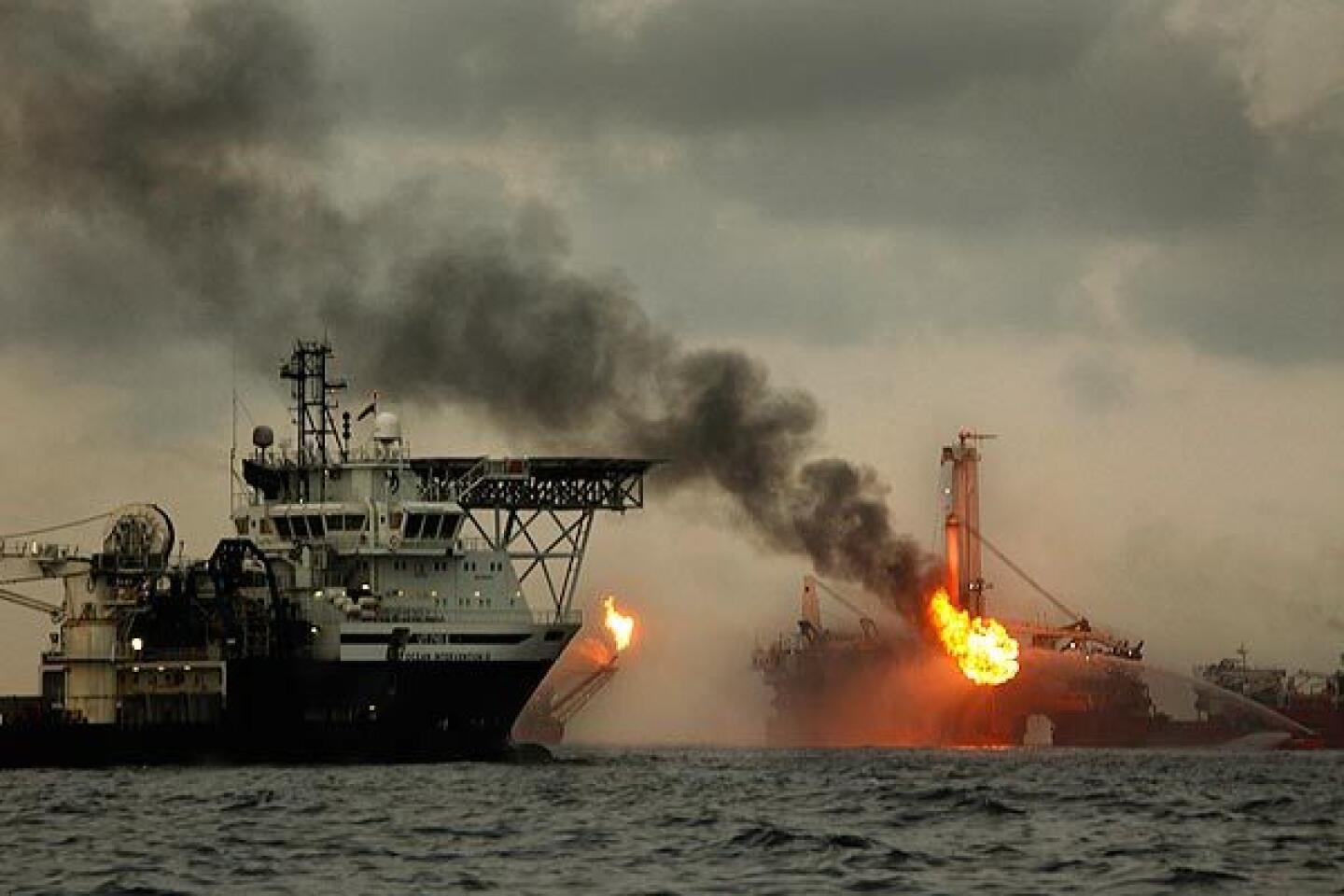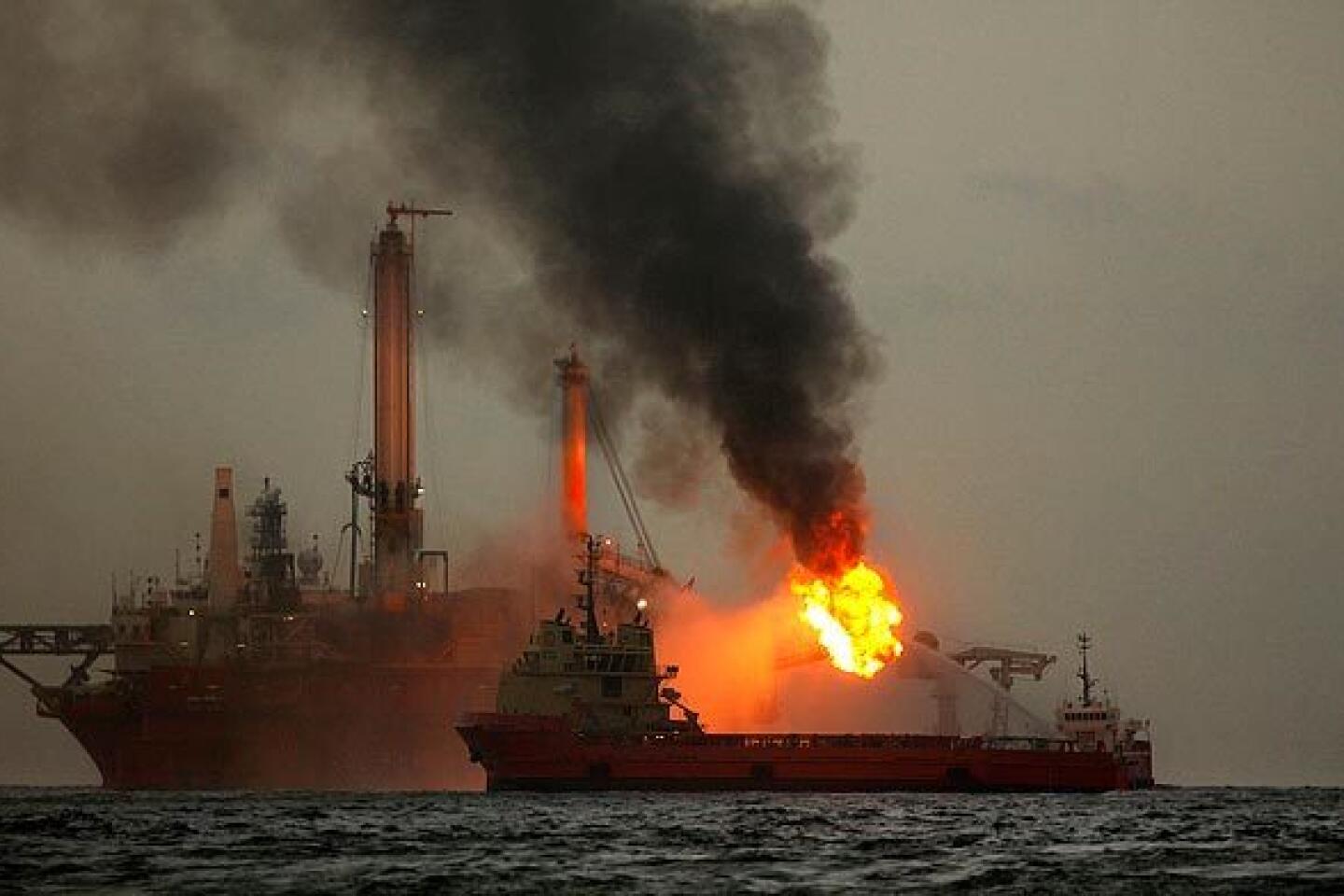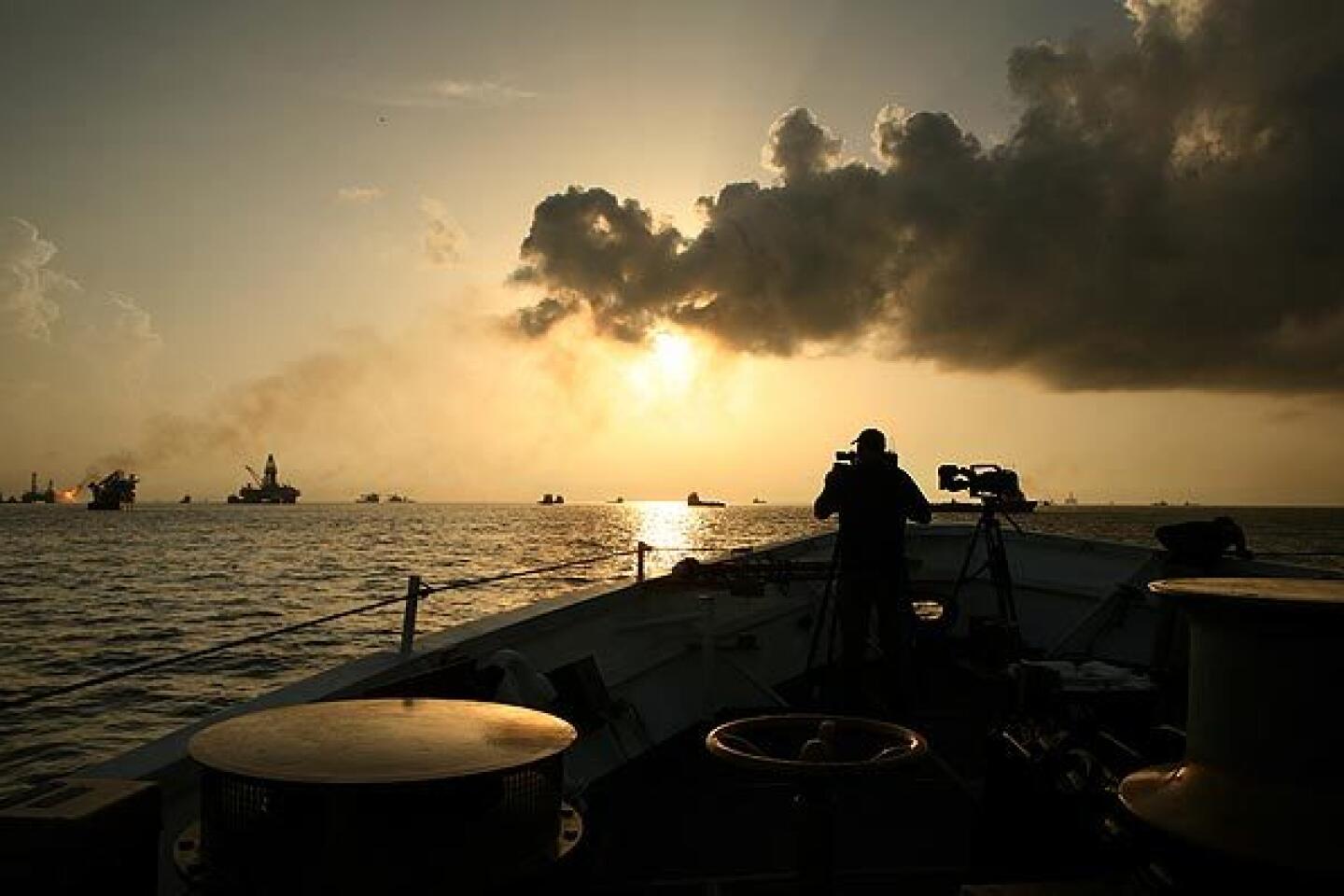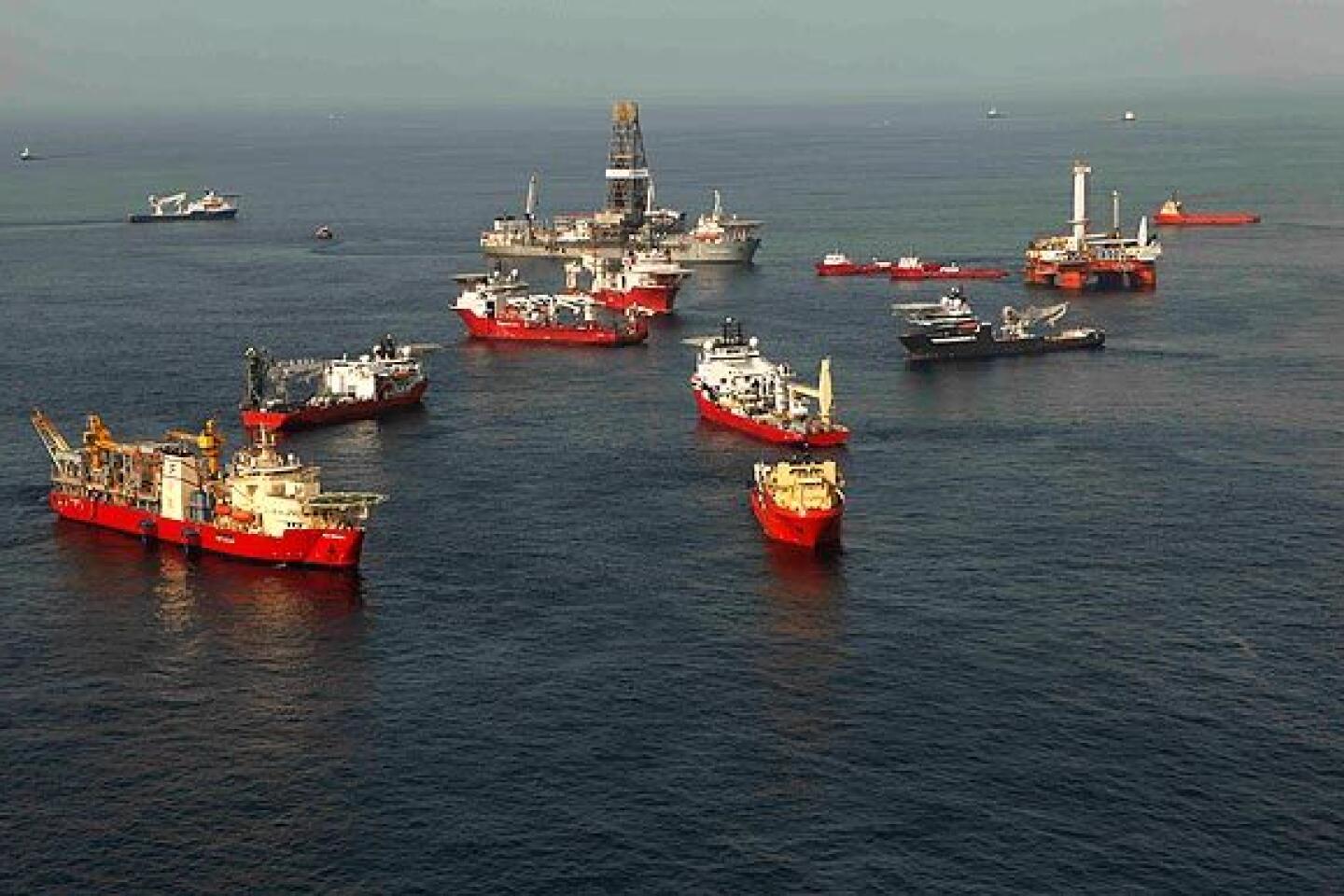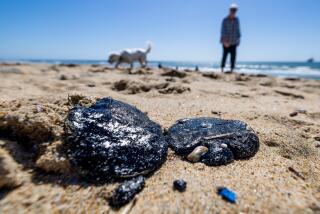Oily waters, soiled beaches weigh on gulf town
- Share via
Reporting from Grand Isle, La. — Two weeks after crews wrestled temporary control of the geyser of oil spewing into the Gulf of Mexico, BP as early as Monday could begin the first step in a weeks-long process to permanently jam the blown-out well.
But here in this fisherman’s paradise, the first town to fall victim to the largest offshore oil spill in U.S. history, the toxic oil is still washing ashore. Grand Isle, population 1,500, is a village still in mourning, still a place where hope is in short supply.
The only inhabited barrier island in all of Louisiana, Grand Isle should be bustling this time of year. But over the weekend, there was no commotion of pickups hauling fishing boats on Highway 1. Vacation homes stood quiet, with blinds down and shutters shut. On the beach, gone was the sound of laughing children playing in the 90-degree waters.
“That’s killed us. My grandchildren ... they love the beach. We lost that. You can’t get that back,” said Councilman Jay La Font, 67. “It’s been going on for 100 days.... We need to have closure of some sort.”
Making things worse, locals say, is the uncertainty of it all. Hurricanes can be awful too, but at least they move on.
“We’re dealing with some unknown,” La Font said. “That’s what makes it different.”
About 50 miles south of New Orleans, Grand Isle sits on the southern edge of Barataria Bay — a dense and extensive wetlands and home to so many fish, shrimp and crab that it is a haven for migratory birds looking for a feast before they journey across the Gulf of Mexico.
It’s clear why pirates loved Barataria Bay, with its vast system of bayous and uninhabited islands. Look at the warm waters, and it’s easy to see fish jumping out or crab swimming away.
But an oily, iridescent metallic sheen coats the waves coming ashore. What at first seem like pebbles scattered over the sand are black tar balls, which form when oil mixes with sand and rocks.
The tar balls’ glittery hardened shell can break apart in the heat, revealing a center that is soft, gooey and pitch-black. It leaves a residue that resembles WD-40 lubricant.
There are so many tar balls that huge tractors are forced to skim the beach 24 hours a day, sucking up tainted sand. Recently, machines were able to squeeze six barrels of oil out of 71 tons of sand, said Jesse Alling, a Coast Guard marine science technician.
In some areas on the beach, the tar balls have congealed into pieces of hardened asphalt, as though someone had repaired potholes on the beach.
The frothy tips of waves are sometimes tinted red, instead of white, an effect of a dispersant, a chemical used to break oil into tiny, invisible particles, Alling said.
Hermit crabs are caked in thick, dark reddish muck, unable to cleanse themselves. About a dozen crabs seemed to be stuck together by the oily, gritty paste on their shells.
“They got a lot of oil on them. See? They’re crawling all around on it,” said Coast Guard marine science technician Daniel Kampsnider.
“Look at his legs in there. They’re entirely coated. You can’t even see the gap between his claws,” Kampsnider said.
Every day, dead birds covered in oil are found by crews. On Saturday, after a flock of royal terns flew off, a Coast Guard crew saw one that had been left behind, its belly tarnished, its feathers waterlogged.
“He was trying to fly away, but he couldn’t. He had too much oil on him,” said Chris Galindo, a Coast Guard maritime law enforcement specialist. Government wildlife biologists were notified.
Even with all the cleanup work on the beach, crews know they are nowhere near done.
“You’ll find oil that’s seeped through the sand,” Alling said. “You could strike oil on the beach.”
Locals say they’re still worried about the effects of the oil and dispersant on fish, and what it means for the long-term survival of a town whose identity is fixed on fishing.
“A lot of people across the country feel that our seafood is not safe, so that’s hurting all the business people,” said La Font’s brother, Claude, 64. “This oil spill is a war against our livelihood.”
Their sister, Kathy Hebert, 60, thinks about the oil and is not optimistic. “I don’t think it’s going to be gone for a long time,” she said.
More to Read
Sign up for Essential California
The most important California stories and recommendations in your inbox every morning.
You may occasionally receive promotional content from the Los Angeles Times.
